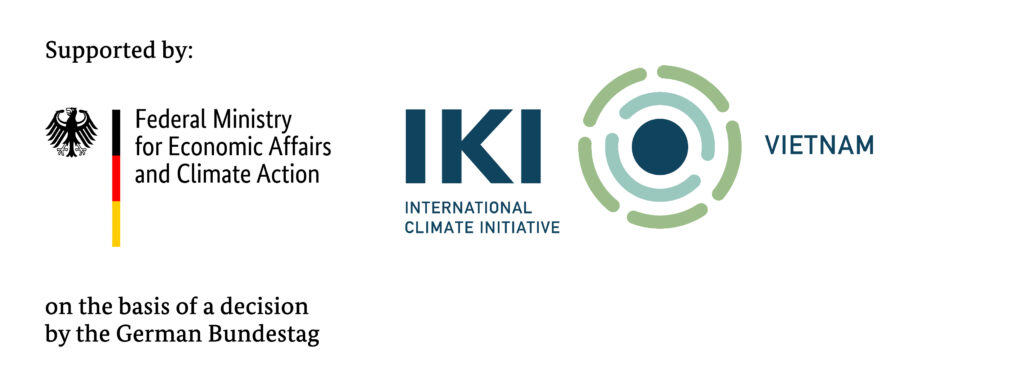Macroeconomic modelling capacities and understanding of climate risks have been enhanced through events conducted by the global programme “Policy Advice for Climate Resilient Economic Development” (CRED). The CRED project supports Vietnam in integrating climate risk into macroeconomic modelling to enhance climate resilient economic development. As part of the project, the Dynamic General Equilibrium Model for Climate Resilient Economic Development (DGE-CRED) model was developed together with the Central Institute for Economic Management (CIEM) and Halle Institute for Economic Research (IWH) to assess future climate change impacts on Vietnam’s national economy and identify effective adaptation options. A series of trainings and workshops are conducted to ensure the national ownership and application of the model.
Following a first training on the economic model in 2020, an additional course was held in October 2021 to provide participants with basic skills in the MATLAB software and the Dynare platform, which are necessary to run the DGE-CRED model. This onsite 5-day course attracted about 15 participants from governmental agencies and research institutes.
The second DGE-CRED modelling training took place in November 2021 with a larger group of participants compared to the MATLAB course. This training course was conducted as a hybrid event with IWH trainers participating online, while national experts were onsite together with the participants. The training included 5 core sessions: (i) Dynamic General Equilibrium Model for Climate Resilient Economic Development, Climate Change Scenarios in (ii) Agriculture, (iii) Forestry, (iv) Housing (Construction), and (v) Transport. Overall, the participants significantly improved their knowledge and understanding of computable general equilibrium (CGE) modelling and particularly DGE-CRED model simulations.
 DGE-CRED training participants in CIEM, Hanoi
DGE-CRED training participants in CIEM, Hanoi
Source: GIZ – CRED project in Vietnam
Following these trainings, a 3rd course is scheduled to take place in March 2022 with lots of promising results on sector extension and scenarios analysis.
This December, a technical workshop was held together with CIEM on the importance of climate risk assessments and cost-benefit analyses for infrastructure investment decisions. The online workshop attracted about 40 participants from NGOs, governmental organizations, research institutes and universities. The focus was on the question how climate risk assessments of individual infrastructure projects (e.g. to protect against floods) can be better integrated into the macroeconomic model. The workshop presented results of climate risk assessment and cost-benefit analysis of different engineering measures for Cai Lon-Cai Be, the largest sluice gate in the Mekong River Delta. Scaling up infrastructure investments at provincial and regional levels are assessed by DGE-CRED model simulations for the road and dyke systems. Only economically sound planning that factors in climate risks allows Vietnam to continue the development progress made.
Global Programme “Policy Advice for Climate Resilient Economic Development” (CRED)
For further information please visit:
» CRED IKI Website
